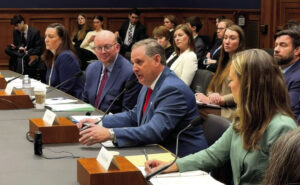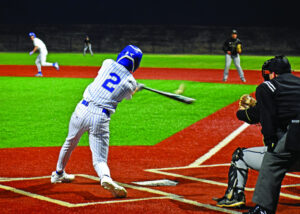Safety urged in midst of heat wave
As families prepare for next week’s Fourth of July activities, weather forecasters suggest they prepare for more than what will be on the grill.
Temperatures have soared into the high 90s and are expected to top the 100 degree mark for the next couple of days. If that does happen, it will be a rare event this early in the year.
“Since 1981, there have only been three days in June that have topped the 100 degree mark. It happened once in 1985 and twice in June of 1988,” National Weather Service meteorologist Brian Carcione said.
“It’s not that uncommon in late July and August, but it’s pretty rare to top 100 in June in the Tennessee Valley.”
Carcione said the current weather pattern reminds him of the summer of 2007. That year, August temperatures rose above 100 degrees 16 different times.
“That does not mean the weather pattern will continue and will be like that, but right now, it does remind me of that 2007 summer.”
With temperatures rising to already above normal temperatures, experts urge residents to take extra precautions.
According to the Alabama Department of Public Health, the combination of record-breaking heat and humidity presently affecting Alabama can be deadly, especially when residents do not prepare for the extreme weather.
Heat-related illnesses occur when the body’s temperature control system becomes overloaded and the resulting effects can include sickness or even heat stroke.
Anyone can be affected by heat-related illnesses, but individuals with heart problems, poor circulation, diabetes, a previous stroke or those who are obese are at a greater risk for becoming sick in hot weather. Heat-related illnesses can also increase among people using medications for high blood pressure, nervousness or depression.
The most serious form of heat-related illness is a heat stroke or a sunstroke, and citizens should be aware of the warning signs, which can vary but generally include the following: an extremely high body temperature above 103 F; red, hot and dry skin with no sweating; rapid, strong pulse; throbbing headache; dizziness; nausea; confusion; and unconsciousness.
According to the ADPH, someone who is experiencing heat stroke should be taken to a shady area, cooled rapidly in a tub of cool water, placed in a cool shower, sprayed with cool water from a water hose, or fanned vigorously. The person’s body temperature should be monitored and medical personnel should be called.
Heat stroke is a serious condition, but it and other heat-related illnesses can be prevented. Just as someone wouldn’t go out into freezing weather without a jacket, people should realize that certain precautions should be taken before venturing out into the summertime heat. Follow these rules of thumb from the ADPH when dealing with the hot Alabama weather:
• Stay indoors and in an air-conditioned environment as much as possible unless you’re sure your body has a high tolerance for heat.
• Drink plenty of fluids but avoid beverages that contain alcohol, caffeine or a lot of sugar.
• Eat more frequently but make sure meals are balanced and light.
• Never leave any person or pet in a parked vehicle.
• Avoid dressing babies in heavy clothing or wrapping them in warm blankets.
• Check frequently on people who are elderly, ill or may need help. If you might need help, arrange to have family, friends or neighbors check in with you at least twice a day throughout warm weather periods.
• Make sure pets have plenty of water.
• Salt tablets should only be taken if specified by your doctor. If you are on a salt-restrictive diet, check with a doctor before increasing salt intake.
• If you take prescription diuretics, antihistamines, mood-altering or antispasmodic drugs, check with a doctor about the effects of sun and heat exposure.
• Cover windows that receive morning or afternoon sun. Awnings or louvers can reduce the heat entering a house by as much as 80 percent.
• Avoid extreme temperature changes. A cool shower immediately after coming in from hot temperatures can result in hypothermia, particularly for elderly or very young people.
• Plan strenuous outdoor activities for early or late in the day when temperatures are cooler, then gradually build up tolerance for warmer conditions.
• Take frequent breaks when working outdoors.
• Wear a wide-brimmed hat, sun block and light-colored, loose-fitting clothes when outdoors.
• At first signs of heat illness (dizziness, nausea, headaches, muscle cramps), move to a cooler location, rest for a few minutes and slowly drink a cool beverage. Seek medical attention immediately if you do not feel better.
• Avoid sunburn because it slows the skin’s ability to cool itself. Use a sunscreen lotion with a high SPF (sun protection factor) rating.







